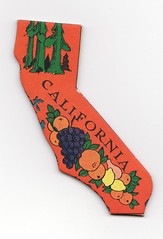 There have been some ongoing problems with the Medi-Cal program in California. Recently, a judge ruled that the California Department of Health Care Services violated disclosure law when it refused to provide background information on cuts to the Medi-Cal program.
There have been some ongoing problems with the Medi-Cal program in California. Recently, a judge ruled that the California Department of Health Care Services violated disclosure law when it refused to provide background information on cuts to the Medi-Cal program.
Medi-Cal is part of the Medicaid program in the state of California. The funding for Medi-Cal comes from both the State and Federal government. It is a public form of health insurance that is designed to be used by people who are low-income, people who are disabled, and people who have specific kinds of serious diseases.
In 2008 and 2009, the legislature of the state of California cut the reimbursement fees that it paid to hospitals, doctors, and other health care providers, who treated patients that were covered by Medicaid. (Keep in mind that Medi-Cal is part of Medicaid). Some of those cuts were as high as 10%.
California was supposed to wait for the federal Medicaid agency to approve of those cuts before they were put into affect. Legislators in California decided not to wait for approval, and simply went ahead and put those changes into affect. Eventually, the federal Medicaid agency made it clear that it did not approve of the cuts. California decided to keep doing the reimbursement cuts anyway.
This led to a lawsuit. A group of doctors, hospitals, and patients sued the state of California, in an effort to stop the reimbursement cuts for Medicaid. It made it to the Supreme Court, who declined to hear the case.
In February of 2012, California Governor Jerry Brown wanted to expand a pilot program that would result in more changes to Medi-Cal. In short, the changes would put high-needs patients who use Medi-Cal into managed care. It also would require people who use Medi-Cal to start paying co-pays when they need to see a doctor. The potential results of these changes have been questioned.
Last year, the California Medical Association, California Hospital Association, and California Pharmacists Association filed a Public Records Act request. The purpose was to obtain the state of California’s supporting evidence that the reimbursement cuts to Medi-Cal would not harm patient’s access to health care.
The request was denied by the California Department of Health Care Services (DHCS). The reason for the denial was that the state needed to keep the documentation private in order “to engage in candid policy discussions” with federal officials.
This week, Judge Lloyd Connelly ruled that the documents that the state provided to federal officials “are not subject to the deliberative process privilege claimed by the DHCS.”
California violated the public records disclosure law when it refused to disclose data on Medi-Cal budget reductions last year. The state now has twenty days in which it can appeal, or ask for additional time to explain why it thinks the documents shouldn’t be revealed.
Image by Calsidyrose on Flickr

